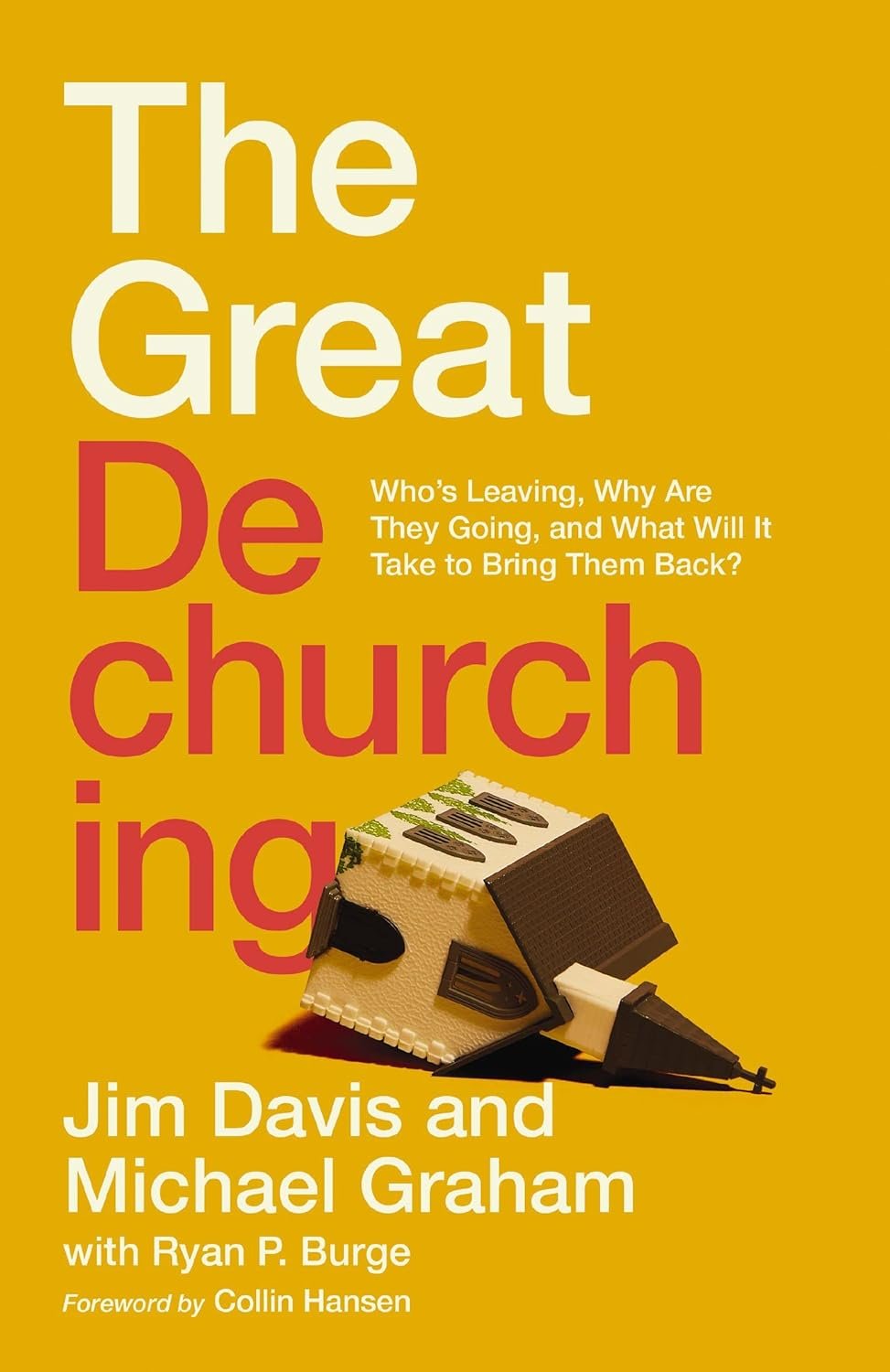Who Are The Dechurched?
In our previous post we began to examine The Great Dechurching by Jim Davis and Michael Graham. In this post, we’ll consider findings about the dechurched.
Who are the Dechurched?
The dechurched are near equally divided in gender: 52% men; 48% women. As to the major traditions of Christianity—Catholicism, Protestantism, and all other Christians—each has dechurched equally at about 32%. Denominationally, Presbyterians have lost 45%, Methodists 37%, Baptists 29%, and Pentecostals 26% amidst the Great Dechurching of the last 25 years. Racially, dechurching among those who previously attended church regularly is 26% Black, 27% White, 14% Hispanic, and 34% of Asian Americans. One surprising insight: The economically disadvantaged are more likely to dechurch. The authors observe that America is largely built for those who follow the “success sequence”: graduate high school; work full time; have children after marriage. The church in America, especially the evangelical church, is built for that formula. How can we think about church for those who are not yet here and those who are no longer here?
How Much is America Dechurching?
40 million Americans have left the church in the last 25 years. The General Social Survey (GSS) provides greater insight into that number. Administered annually since 1972, the GSS is a benchmark for US social research. In 1972, 9% of Americans said they never attend a religious service; by 2021 that had risen dramatically to 31%. In 1972, 41% of Americans attended church at least once a week; in 2021 that was down to 24%. These statistics lead to another bracing realization: 35 million children raised in families now identifying as Christian will no longer identify as Christian or attend church by 2050. Each of these staggering numbers represents a person Jesus died for; what is your reaction to these numbers?
Five Major Types of Dechurched
Cultural Christians are those who identify as Christians but have little connection to the church. They have casually dechurched—a passive dechurching due to friends no longer attending or simply moving and never finding a new church.
Dechurched Mainstream Evangelicals are younger on average than their still church friends. They stopped attending because the moved or attendance was inconvenient. Friendships and invitations from churched people can bring them back.
Exvangelicals are those who have actively left the Christian faith. They are casualties of Christianity; no longer fitting in or having a negative experience that led to their departure.
Dechurched BIPOC (Black, Indigenous, Peoples of Color), was a surprise to researchers who did not consider race in their initial surveys but saw such uniquenesses they looked deeper. This group is too diverse for a one sentence summary other than pointing readers to the book to look deeper.
Dechurched Mainline Protestants and Catholics. They were another surprise to the researchers as theologically and socially these two groups were so similar.
The greatest insight to apply from all five groups: the most common reason they stopped going to church—they moved. That’s it. If that’s the biggest reason they left, how can we get them back?
How Can We Respond?
Though we’ll consider this question in our next post, I’m guessing that you have some ideas already. Remember, our primary response: Invite. Invite people to friendship. Invite people to consider Jesus. Invite people to attend church. Dechurched or unchurched alike are created in God’s image and he desires a personal love relationship with each of them. And you can introduce them.
To read the previous post, The Great Dechurching, click here.
To subscribe to this Serving Churches blog via RSS, click here.
Share and comment below. Thank you!


